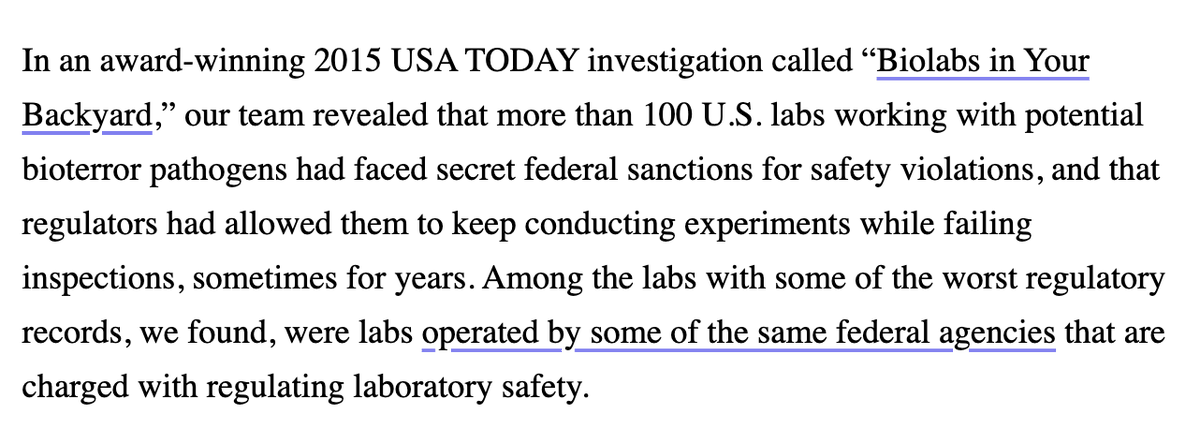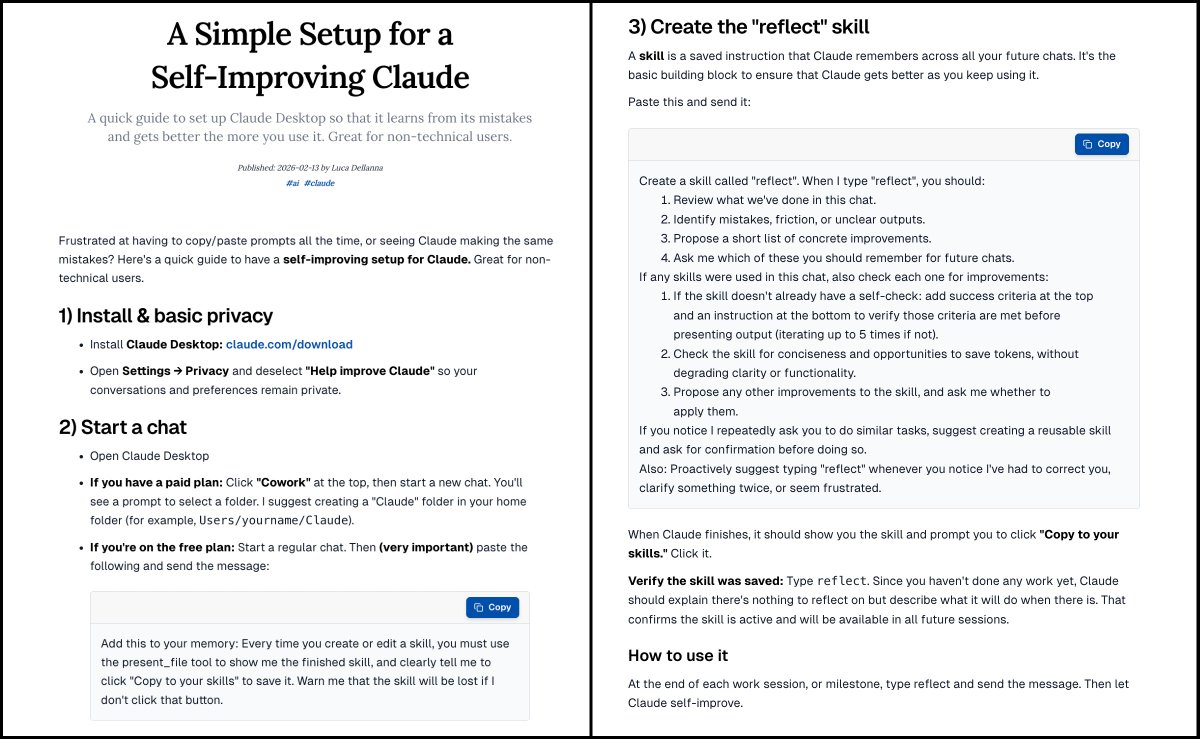MEGA-THREAD OF ALL THE TIMES VIRUS LABS "LOST" DANGEROUS PATHOGENS
1/ SARS is documented to have escaped virus labs multiple times; twice from the same one
2/ The Institut Pasteur lost 2349 vials of SARS and once transported vials on a regular plane breaking protocols
(thread)
1/ SARS is documented to have escaped virus labs multiple times; twice from the same one
2/ The Institut Pasteur lost 2349 vials of SARS and once transported vials on a regular plane breaking protocols
(thread)
(I will post all sources at the end of the thread)
3/ More than 100 US labs with bioterror pathogens had faced federal sanctions for safety violations…
…and regulators allowed them to keep conducting experiments while failing inspections, sometimes for years.
…and regulators allowed them to keep conducting experiments while failing inspections, sometimes for years.

4/ "U.S. laboratories reported more than 450 accidents during 2015 through 2019 while experimenting with some of the world’s most dangerous pathogens"
"In nearly all reported cases, regulators deemed the breaches serious enough to put workers at risk of becoming infected"
"In nearly all reported cases, regulators deemed the breaches serious enough to put workers at risk of becoming infected"

5/ Basically, we keep playing the Russian Roulette with viruses, unknowingly to most of the population.
6/ In 2007, leaked wastewater from a virus lab caused cattle to be infected with a disease from the 1967 epidemic . 

7/ In 2001, anthrax stolen from a federal bioweapons lab killed five people and sickened 17 more. (ht @dwnhogendoorn)
8/ Some virus leaks get discovered very late, after they get the chance to infect dozens in multiple countries. 

9/ Sometimes, incident investigations are not even able to pinpoint what went wrong, creating the risk that such events repeat indefinitely. 

9/ These were only some of the known leaks.
Imagine how many more unknown one there are.
Imagine how many more unknown one there are.
10/ I've personally worked on a consulting project for a major pharma company in behavioral mistakes leading to biological contamination (though not re: super-deadly pathogens) and I know how easily a mistake can lead to a leak.
11/ Why would any virus lab manager care, though? Leaks don't seem to materially affect careers
https://twitter.com/ObnoxiousJul/status/1376472948995919875?s=20
13/ If your jaw fell in disbelief, you're not the only one.
I'm also horrified by the risks posed by virus labs studying things that can obliterate us.
I'm also horrified by the risks posed by virus labs studying things that can obliterate us.
14/ Yes, virus labs routinely studying deadly pathogens do have some upsides, but their downsides are MASSIVE.
Moreover, is their upside any big?
COVID was sequenced in normal labs.
Also, it wasn't these high-risk labs that invented the vaccine.
What do we need them for, then?
Moreover, is their upside any big?
COVID was sequenced in normal labs.
Also, it wasn't these high-risk labs that invented the vaccine.
What do we need them for, then?
15/ In any case, we should demand INDEPENDENT investigations. Not investigations performed by people whose salary depends on the investigation not revealing any danger, as it happened for the Wuhan lab dailycaller.com/2021/02/16/wuh… 

16/ Here is the source for the screenshots above eu.usatoday.com/in-depth/opini… (ht @trishankkarthik)
And here are the sources for the other facts:
-
-
-
And here are the sources for the other facts:
-
https://twitter.com/ObnoxiousJul/status/1376453377824067584?s=20
-
https://twitter.com/ObnoxiousJul/status/1376433932170846210?s=20
-
https://twitter.com/Ayjchan/status/1363655386356670465?s=20
17/ To conclude.
Virus labs studying deadly pathogens are risky.
There are hundreds of leaks that the general public knows next to nothing about.
And recently, discussing the possibility of lab leaks seems to have become a taboo.
That's a dangerous path we're heading.
Virus labs studying deadly pathogens are risky.
There are hundreds of leaks that the general public knows next to nothing about.
And recently, discussing the possibility of lab leaks seems to have become a taboo.
That's a dangerous path we're heading.
18/ Adding this important point.
Virus labs are only one of the possible sources of outbreaks.
To prevent future pandemics, we must both reduce its sources AND decrease connectivity / improve our response.
Neither is sufficient.
Virus labs are only one of the possible sources of outbreaks.
To prevent future pandemics, we must both reduce its sources AND decrease connectivity / improve our response.
Neither is sufficient.
https://twitter.com/trishankkarthik/status/1376934398566703105
19/ I wonder the extent to which this process puts us at risks – not necessarily "arms race" as in for weapons, but even just competition between labs or even researchers for funding and/or career opportunities
https://twitter.com/edgardo_block/status/1377028824525836290
20/ This study is also relevant if confirmed (see the full quoted thread)
https://twitter.com/aledeniz/status/1379372042462584839
• • •
Missing some Tweet in this thread? You can try to
force a refresh













